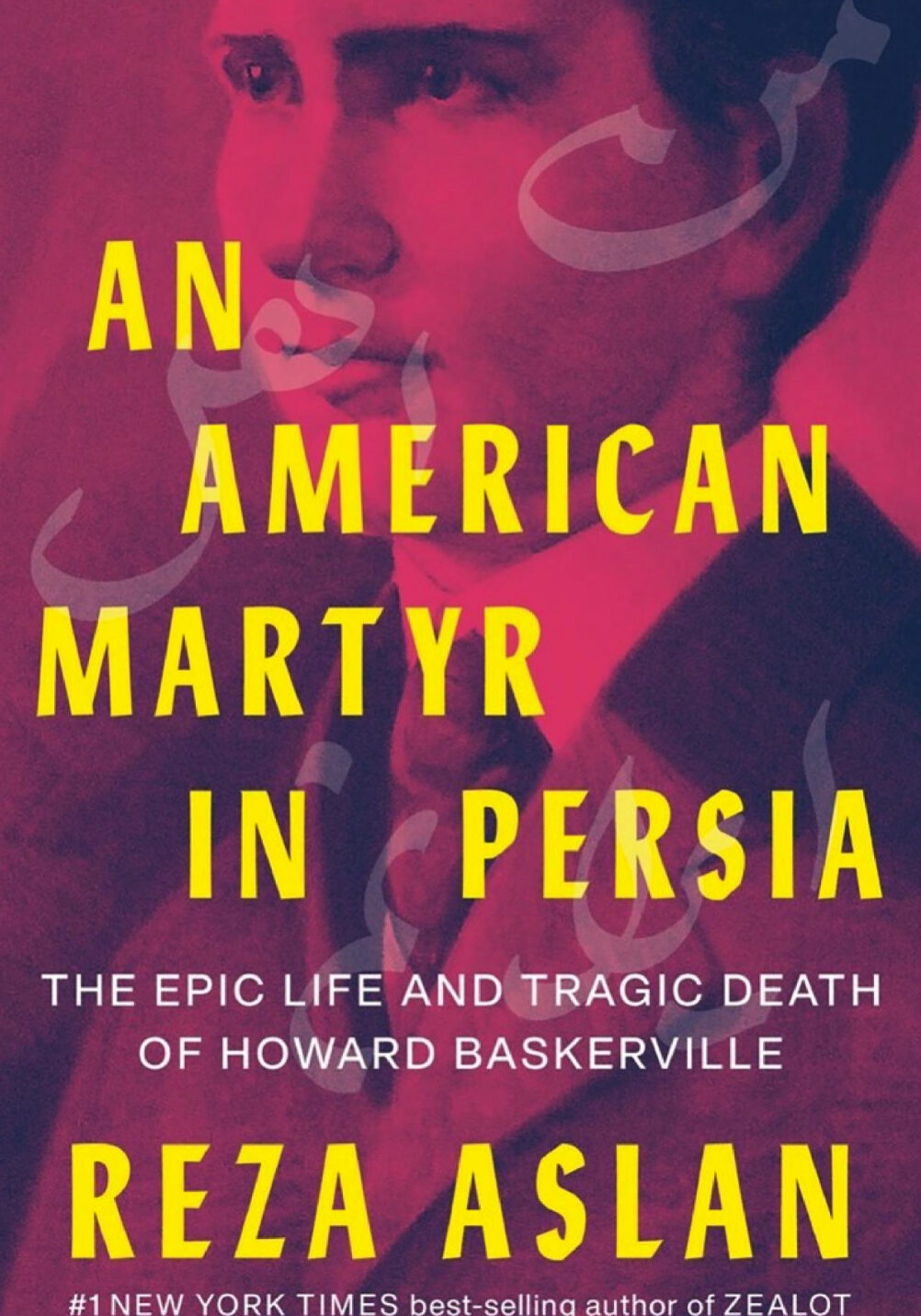
In 1907, Howard Baskerville left America for the mission he’d been preparing for — his destination the American Memorial School in Tabriz, Persia, a campus established by American Presbyterian missionaries, where he planned to teach. Two years later, he died fighting for Iran’s people. For Baskerville, how he got there is less a story explained by his politics and more a story of his faith.
The Persian Constitutional Revolution, from 1905 to 1922, was, for Iran, as important as the American Revolutionary War was for the United States. And Baskerville became the American to Iran as the Marquis de Lafayette, the French revolutionary hero, was to the United States. That’s how Reza Aslan, author of Baskerville’s biography, An American Martyr in Persia, would describe the weight of Baskerville’s life and death in Iran.
Aslan is a scholar of religion, a writer, and producer. Zealot (2013), his book on the life of Jesus, was a No. 1 New York Times bestseller, and his work as a producer has earned both Emmy and Peabody nominations. He’s the host and executive producer of two television programs, including Believer, a documentary series from CNN exploring faith around the world. Aslan’s biography of Baskerville was released last month.
From Iran himself, Aslan grew up hearing about this story that united Iranians and Americans. But in the 21st century, and now more than 100 years after Baskerville’s death, an American in Iran conjures a different image. “I would say that I’m probably the last generation of Iranians who knew this story,” Aslan told me a few weeks ago. He emigrated to the United States with his family after the Iranian Revolution of 1979.
Like many in his generation, Aslan said, he knew only the basics of Baskerville’s story: “He was an American missionary, he went to Iran in the middle of this revolution, he ended up fighting and dying for the cause of Iran’s freedom.” But it’s more complex than that, he explained. “I really wanted to resurrect his legacy, not just for Iran, but especially for the United States.”
By the time Mohammad Ali Shah Qajar ascended to the throne of Persia in 1907, there was significant momentum for change as the revolution sought to change the political and social order of the country — which, at the time, was under the rule of a tyrannical and extravagant monarch. Mohammad Ali Shah’s father, the shah (or monarch) before him in the Qajar dynasty, had agreed to the creation of a constitution and the establishment of a parliament just a year earlier, a milestone in the revolution’s effort to bring about a Persian constitutional monarchy. But Mohammad Ali Shah was determined to undo this, abolishing parliament and imposing a dictatorship upon the people of Persia. Tabriz, the city where Baskerville landed, would become a center of the conflict to come.
In legends, many consider Baskerville transformed — from missionary to revolutionary. “Let’s begin by saving their lives, and then we can talk about their souls,” Baskerville seemed to say. But Baskerville may have argued that his role as a revolutionary didn’t require his transformation. As a missionary, he felt responsible to ask one question in his new community: What do you need? There isn’t anything revolutionary about that.
Aslan and I talked about Baskerville’s love for his neighbor, who he stood by even to his death.
Why tell Baskerville’s story now?
What I knew about his story was very little — because that’s really all anyone really knew about his story. Over the last century, every once in a while someone would write maybe a short essay or a little op-ed about Howard Baskerville. And those stories, those short pieces always just kind of regurgitated the most basic facts of his life, that he was this American missionary, that he went to Iran in the middle of this revolution, that he ended up fighting and dying for the cause of Iran’s freedom.
Fortunately — digging through the Presbyterian historical archives, Persian and Russian sources, and the U.S. archives as well — I was able to piece together a much fuller life. He became a three-dimensional person instead of just the sum of these actions.
What did it mean to be an American in Persia? And, as you point out, to be “the American” means something starkly different now — the first image in the mind of Iranians is certainly not Baskerville’s. How did that change?
Baskerville lived at a time in which the only Americans that Iranians knew were really the missionaries. There’s no reason, I got to be honest with you, to think that these missionaries were all that successful in converting anyone. That’s one thing that I think is kind of the untold story about the mission’s work. I mean, yes, they converted a lot of indigenous [Assyrian} Christians to American Christianity, but there are maybe a handful of stories, despite 70 years of this mission, in which anyone else was converted.
The missionaries really did integrate themselves into Persian society, especially their children. It was in the way in which Sarah Wright and Agnes Wilson thought of themselves, not as Americans but as Persians. They were one of us, and I think this was long before there was any kind of American foreign policy meddling or interests in the Middle East. So when you asked your average Iranian to describe an American, they would describe one of these missionaries.
Certainly the actions of Baskerville were viewed in no uncertain terms as a supreme act of service and sacrifice. And that’s how it was remembered for generations. The name Baskerville meant the American. And up to the 1979 revolution, you did hear a lot of people in Iran making the argument, “Where are the Baskervilles of today? What happened to the American Baskervilles?”
Now, of course, by [1979] America had become far more familiar to Iranians as a foreign policy power that was aggressively pursuing its own interests in the region. And often those interests were directly at odds with the needs of the people themselves.
It is heartbreaking sometimes when I think about that, the yearning for the Baskervilles of today, because it’s just a reminder of how much our image [as Americans] … has been sullied by our aggressive pursuit of our economic and foreign policy interests in countries where the people are yearning for freedom, the people are yearning for help. But maybe, if I can remind people of who Baskerville was, we can resurrect that image of ourselves — that we can once again become a nation of Baskervilles.
Baskerville finds himself in a revolution, but he comes from a mission organization where that was not at all a part of what was expected of him. What kind of conversation have you encountered surrounding Baskerville himself? Is his story one of a white savior?
In some ways, this is the quintessential white savior story, right? I mean, [Baskerville] is a white, privileged man going to the “lost sheep” of the Middle East to bring salvation to them. That’s about as white savior as it gets.
But when I really began to focus on the decisions that led to him giving his life for this country that wasn’t his, in a way it became sort of the antithesis of a white savior story, because key to his transformation was his conscious decision to give up his privilege, the privilege that kept him safe during a year and a half of war, a privilege that he could have used at any moment as a safety net, like a parachute he could have pulled at any moment.
And yet, rather than take advantage of his privilege, he abandoned it. He gave up his American citizenship, the protection of the United States government, so he could fight for people who needed him.
However one feels about the missionary enterprise — and there’s a lot of good that the missionaries in Iran did in building hospitals and schools and taking care of the population, educating the populace — one can’t lose sight of the fact that the ultimate goal was the conversion of the population to this particular American brand of evangelical Protestant Christianity.
Did this set Baskerville apart from this brand of Christianity? Or from others he served with in Tabriz?
What really set Baskerville apart was that he truly believed that his faith called him to not just save souls, but to save lives, to ask the people that he had come to serve what they actually needed of him. What really drew me to his story is that it just flips all of this traditional narrative — the white savior narrative, the missionary narrative — on its head, while still maintaining this devotion to his faith.
This wasn’t him abandoning those things. This was him exerting those things.
He began to ask the people that he had come to serve what they actually wanted from him. And that’s something that I’m not sure missionaries are really trained to do — and I would say that’s similarly true for lots of communities or individuals who go out into underdeveloped parts of the world in order to do good, be they volunteer or church-related organizations.
Baskerville’s fellow missionaries absolutely sympathized with the plight of the Persians they were serving. They understood very clearly who the villain in this story was, clearly making it known in letters back to the Presbyterian Board of Foreign Missions, that the shah was a villainous dictator, and the people were fighting for their most basic rights.
The Persians in his community were very clear about what they needed, “What we need is help. That’s what we need. We don’t need preaching. If you want to serve us, then fight alongside us.” His fellow missionaries were trying to feed the starving population. Baskerville was trying to stop the person starving them.
And Baskerville says, “The only difference between me and them is the place of my birth. That’s not a big deal. It’s not a big deal.”
If there’s one thing that we can carry with us now from Baskerville’s experience, it’s precisely that. The way that we divide ourselves, it’s so arbitrary. What separates us from the women in Iran right now demanding their most basic rights? The only thing that’s different between them and us, is the place of our births.
That, to me, is the moment in which I really feel like he is speaking not just to the American Council General that he is standing in front of, but he is speaking to us.
And that’s such a great response to the whole, “What you’re doing is illegal,” argument he received from Americans. “You’re engaged in a foreign revolution,” they’d say. And he said, “No, I’m not.… I’m just protecting the people that I came 10,000 kilometers to serve…. I’m not marching on Tehran. I came here to save these souls and I’m starting with their lives. Let’s begin by saving their lives, and then we can talk about their souls.”
This interview has been edited for clarity and brevity.





